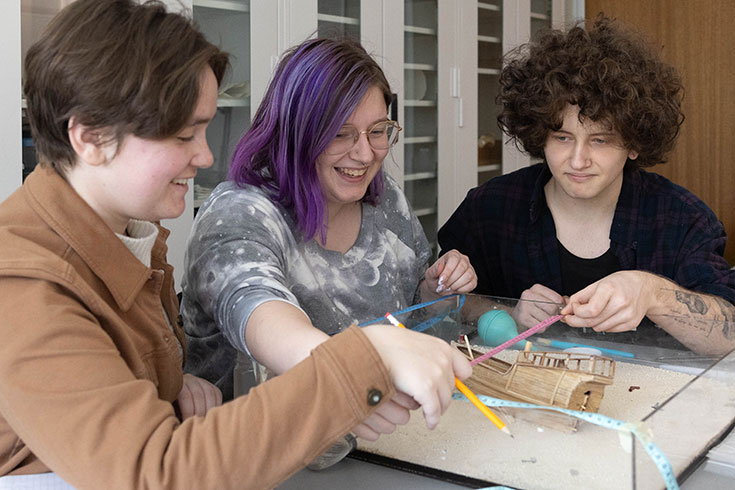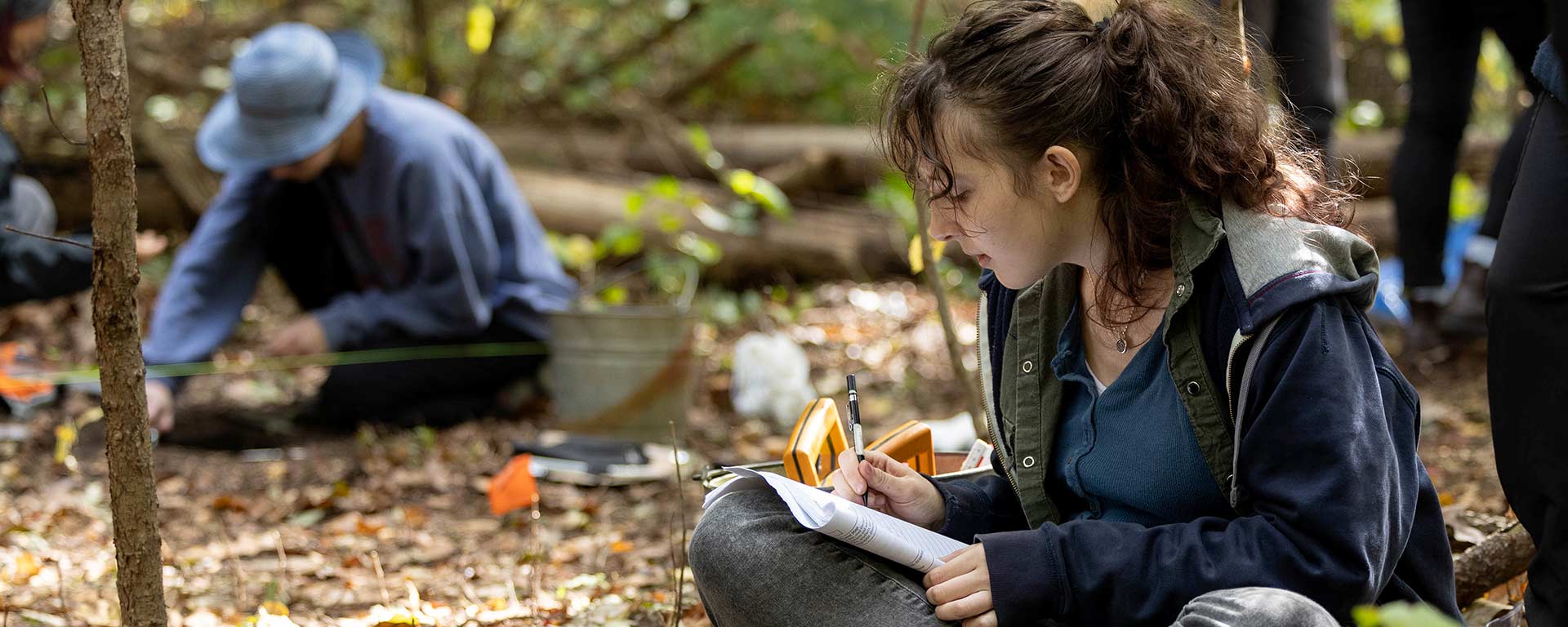Bachelor of Arts in Anthropology
Anthropology studies the diversity and complexity of human life in a globally interconnected world. It considers such fascinating questions as why and how people from distant parts of the world are different and the same, how the human species has evolved over millions of years, and the ways people make sense of and order their lives.
Brandeis offers anthropology courses on topics central to understanding human social-cultural life, including medicine and religion, power and violence, gender and sexuality, cultures of capitalism, nature and the environment, archaeology, museums and fashion, social movements and human rights, and research methodologies.
Why Brandeis?
At Brandeis, you will be taught by faculty who are active, research-intensive scholars, and dedicated to their students. They will encourage you to think and learn deeply — not only through books, but in the field.
Because of our emphasis on writing and in-class discussion, you will graduate with solid skills in data collection, critical thinking, and communication. You will be well prepared for graduate study and a scholarly career in anthropology, as well as for a career in any field dealing with people — from health care to government, from business to journalism, from education to human rights work — anywhere in the world.
Academics and Research
Expand All
Anthropology allows for an almost infinite range of inquiry, from embarking on an archeological dig in Concord, Massachusetts, to studying immigrant Russian women in Helsinki, from analyzing ancient Mayan artifacts to making a film about the ethics of fashion and the Peruvian alpaca wool supply chain.
This is a truly interdisciplinary field. Our affiliated and cooperating faculty work in departments and schools across the university, including Islamic and Middle Eastern Studies; Latin American, Caribbean and Latinx Studies; South Asian Studies; and Women’s, Gender, and Sexuality Studies.
Field work can take you far. Our faculty do field work in the United States, Africa, Latin America, East Asia, South Asia, Middle East — and you can, too.
Faculty and Student Excellence
Expand All
If you're passionate about anthropology and up to the challenge, you might consider devoting your two final semesters to completing a senior honors thesis on a research topic of your choice. Recent student theses include “January 6th Did Not Take Place: An Ethnohistory,” “Prehistory Has Its Eyes on You: Plastered Skulls from the Pre-Pottery Neolithic B and their Grave Offerings,” and “Modern Cyber Witch-Hunting: Scapegoating Mechanisms in Collective Cyberbullying of Women in Chinese Streaming Platforms.”
Beyond the Classroom
Expand All
As a student of humanity, immersing yourself in another culture makes perfect sense. What better way to practice a second language or gain cross-cultural perspective? Many of our majors and minors live and study abroad for a semester — in many cases for credit. We have approved programs in several countries.
Learn more about study abroad opportunities.
Many anthropology majors live the Brandeis commitment to research, learning, and social justice by being engaged scholars. With the support of grants, they do research, public service, and fieldwork — right here in Waltham and around the world.
We offer several courses that take you out into the field. For instance, in Applied Anthropology, you’ll use research and other anthropological approaches to solve real-world problems related to the environment, urban planning, and more.
Careers, Graduate Study, and Alumni
Expand All
In addition to pursuing graduate work, anthropology graduates go on to rewarding careers in a wide variety of fields. Our alumni are working in nongovernmental organizations, politics, and education all over the globe.
Learn more about careers in anthropology.
- Gabriela Mendoza Cueva ’22 is pursing an MPH at the Yale School of Public Health, concentrating in Chronic Disease Epidemiology.
- Nina Kumar ’23 is a Research Specialist at Adelphi Values, a global healthcare consulting organization.
- Matthew Kupfer ’12 has served as a Junior Fellow in the Russia and Eurasia Program at the Carnegie Endowment for International Peace in Washington D.C.
- Alexis Matza ’98 is a feminist medical anthropologist and deputy director of the LGBT Health Program for the Veterans Health Administration.
- Noam Sienna ’11 received his PhD in history at the university of Minnesota-Twin Cities where he studied Moroccan Jewry with Professor Daniel Schroeter.
- Simon Sinek ’95 founded The Optimism Company and wrote several bestsellers, including "Start with Why: How Great Leaders Inspire Everyone to Take Action."
- Ayush Thacker ’23 is a Clinical Research Coordinator at the Center for Aging and Serious Illness at Massachusetts General Hospital.
- Katherine Weisensee ’99 is department chair and associate professor of Anthropology at Clemson University.
Read more about our alumni

